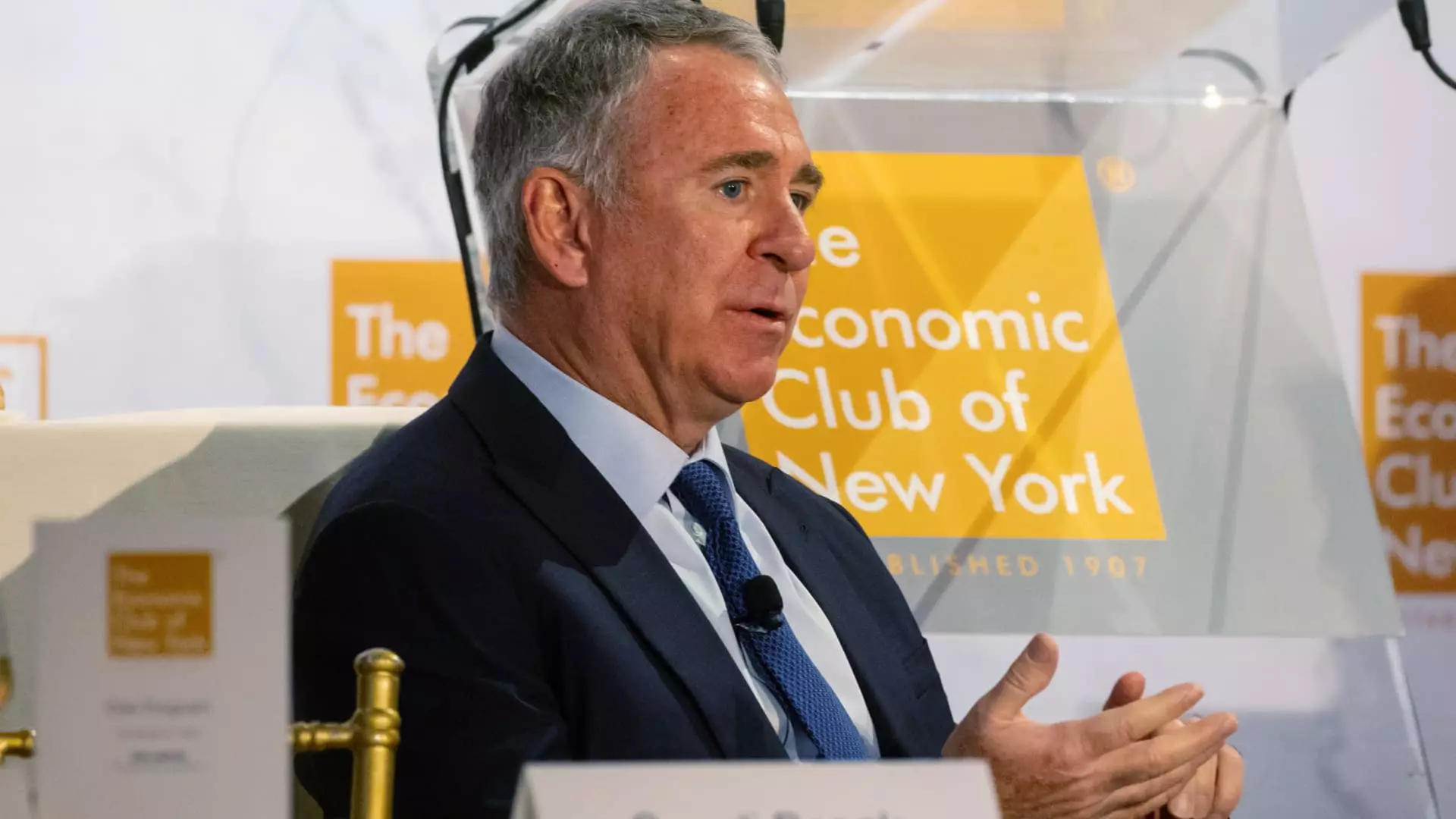In a poignant address at the Economic Club of New York, Ken Griffin, the CEO of Citadel, voiced serious concerns regarding the aggressive tariff policies proposed by President-elect Donald Trump. His warnings about the inclination toward crony capitalism—a system characterized by intertwined interests between businesses and government officials—raise critical questions about the long-term implications of such trade measures. Tariffs, while seemingly a tool for protecting domestic industries, might ultimately lead to detrimental effects on the broader economic landscape.
Griffin pointed out that while domestic companies might experience a temporary advantage due to fewer competitive pressures from abroad, this situation is likely to foster complacency over time. He argues that the short-lived benefits of having competitors eliminated can dull the competitive edge of American firms, making them reliant on protective measures rather than innovation and efficiency. As companies fall into this trap, they risk losing their ability to compete globally or meet the expectations of American consumers, undermining the very purpose of economic protectionism.
Trump’s proposed tariffs—most notably a sweeping 20% on all imports and a staggering 60% on Chinese goods—could escalate challenges for consumers and businesses alike. Griffin aptly contended that the production costs could surge, particularly as the economy emerges from the turbulence caused by pandemic-driven inflation. This reflects a broader pattern where protective trade policies lead to higher prices and limited choices for consumers, a reality that could hinder the consumer recovery.
Moreover, Griffin foresaw a surge of lobbyists and special interest groups flooding Washington, lobbying for escalating tariffs that would insulate ineffective American businesses. This serves as a cautionary tale about how corporate reliance on government intervention can distort the marketplace, leading to inefficiencies. As businesses seek to maintain a shield against foreign competition through higher tariffs, innovation and adaptation—the cornerstones of a dynamic economy—may be stifled.
Despite sharing his apprehensions about tariff policies, Griffin also touched upon the strategic direction of Citadel. He emphasized that the firm has no immediate plans to go public, choosing instead to focus on nurturing growth and innovation within the company. This decision reflects a broader trend among successful private entities that prioritize agility and strategic investments over the public market’s pressures.
As the economic landscape evolves, the debates surrounding tariffs and their implications will remain paramount. The warning from Ken Griffin highlights a vital perspective: that economic protectionism, while appealing in theory, could lead to unintended consequences that compromise competitiveness and efficiency in the American economy. In striving for a robust recovery, it is crucial for policymakers to consider the long-term ramifications of shielding domestic businesses at the expense of innovation and consumer choice. Balancing protection with progressive economic practices is key to fostering a resilient and competitive economic future.

